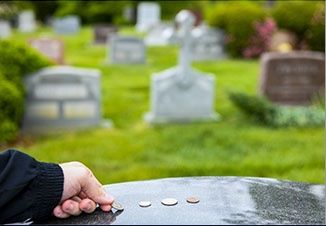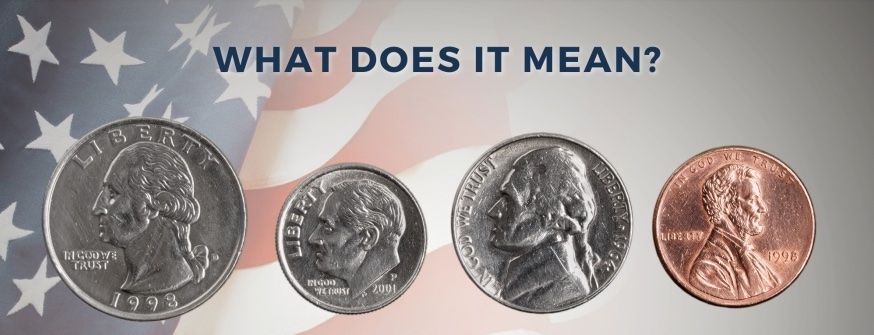Memorial Day is a time to honor those who made the ultimate sacrifice for our freedom. During this time, ceremonies honoring those brave men and women who gave their lives for our freedoms are conducted at veterans' cemeteries across the country.
There are flowers, flags, and parades, but if you've ever visited a national or state veteran cemetery, you may have noticed coins left on grave markers. But did you know that each type of coin has special meaning and significance? Let's dig into this intriguing tradition a little more.
Origins
According to an article by the Department of Military Affairs, the custom of leaving coins with the deceased can be traced back to the Roman Empire. Coins were placed into the mouth of fallen soldiers to pay for passage and protection across the River Styx, which separates the world of the living from the world of the dead. In Navy mythology, coins were placed under the mast of a ship to pay the "ferryman" for safe transport to the afterlife in the event sailors died at sea.
It's not clear exactly when the practice of leaving coins on the graves of veterans began. However, many believe that the practice began in earnest after the Vietnam War. Leaving a coin was thought to either be 1) a way to pay respects to a soldier without getting pulled into discussions about this much-debated war or 2) a down payment on a drink or a hand of cards when the friends are finally reunited.
While our funeral practices are no longer in line with the ancient world, coins have survived as a method for paying homage to someone we admire and respect.
What do the coins mean?
Placing a coin on a headstone of a service member or veteran is a show of respect and honor, as well as letting the deceased service member's family know someone was there, but the denomination of the coins each has a distinct and significant meaning according to tradition.

Penny - signifies that someone (veteran or civilian) has visited the grave
Nickel - signifies that the coin-leaver attended boot camp with the veteran
Dime - signifies that the coin-leaver served with the veteran in some capacity
Quarter - signifies that the coin-leaver was present when the veteran died
As you can see, the higher the coin denomination, the closer and more personal the relationship to the deceased veteran. In addition to the four standard coins, it's possible you may also see challenge coins left at a grave as a token of respect.
Honoring our heroes
Leaving coins on military headstones and veterans' graves is a kind and appreciated gesture, but what generally happens with them after time is also significant and special. The coins are usually collected and used for upkeep of the cemetery or to help pay for burial costs for homeless veterans.
While visiting military graves this Memorial Day (or any other day), why not bring some pocket change as a simple symbol of respect to those who gave so much? It's a small gesture that could mean a lot to the loved ones of these late heroes.
